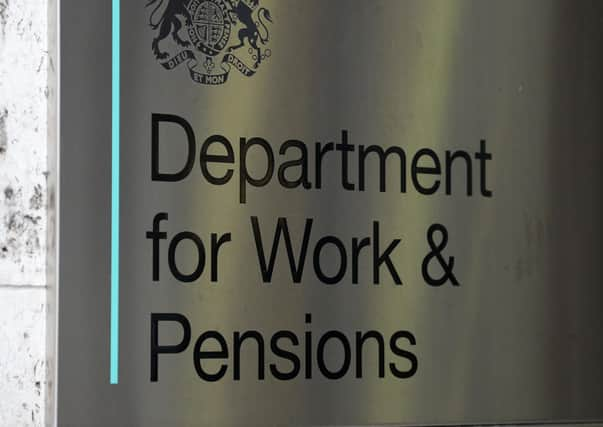How Universal Credit is ‘pulling people into poverty’


The “fundamental inadequacy” of the Universal Credit welfare regime has been exposed by the coronavirus pandemic, with concerns that it is now “pulling people into poverty”.
Campaign organisations have raised concerns over insufficient levels of benefit, problems contacting DWP staff and lengthy waits to receive money.
Advertisement
Hide AdAdvertisement
Hide AdThe number of Scots claiming Universal Credit has jumped to 110,000 in mid-March, compared with 15,000 in the same period last year, but there are fears the most vulnerable are losing out.
Lone parents, parents relying on insecure work and families affected by disability are being hardest hit by the crisis, Scotland on Sunday has been told.
Peter Kelly, director of campaign umbrella group the Poverty Alliance, said: “We built our social security system so that we could all be supported in our times of need, but as a result of the Covid-19 crisis more and more people are seeing how far we are falling short of that ambition.
“Universal Credit should be there to keep everyone afloat, but too often – because of factors like the five-week wait for first payments and the inadequacy of support provided – it is pulling people into poverty.”
John Dickie of the Child Poverty Action Group (CPAG) said even the recent increase in payments to help combat the crisis will still leave many in “huge hardship”.
He said: “The current crisis has exposed the fundamental inadequacy of UK benefit levels. Our social security system has been stress-tested and found wanting.” He added: “Even before the crisis children were at the greatest risk of poverty.
“Worse still, families who were already facing the greatest income struggles – lone parents, parents relying on insecure work, families affected by disability – are now the families who are being hardest hit by the coronavirus crisis.”
Deborah Hay, Scotland Policy Officer with the Joseph Rowntree Foundation, said those with high rental costs are also at risk, despite moves to raise the housing allowance.
Advertisement
Hide AdAdvertisement
Hide AdShe said: “This still won’t cover average rents for families who rely on the private rented sector. The gap will be acute in high cost areas of Glasgow and Edinburgh where more people rent and there is less affordable housing overall.”
Comments
Want to join the conversation? Please or to comment on this article.